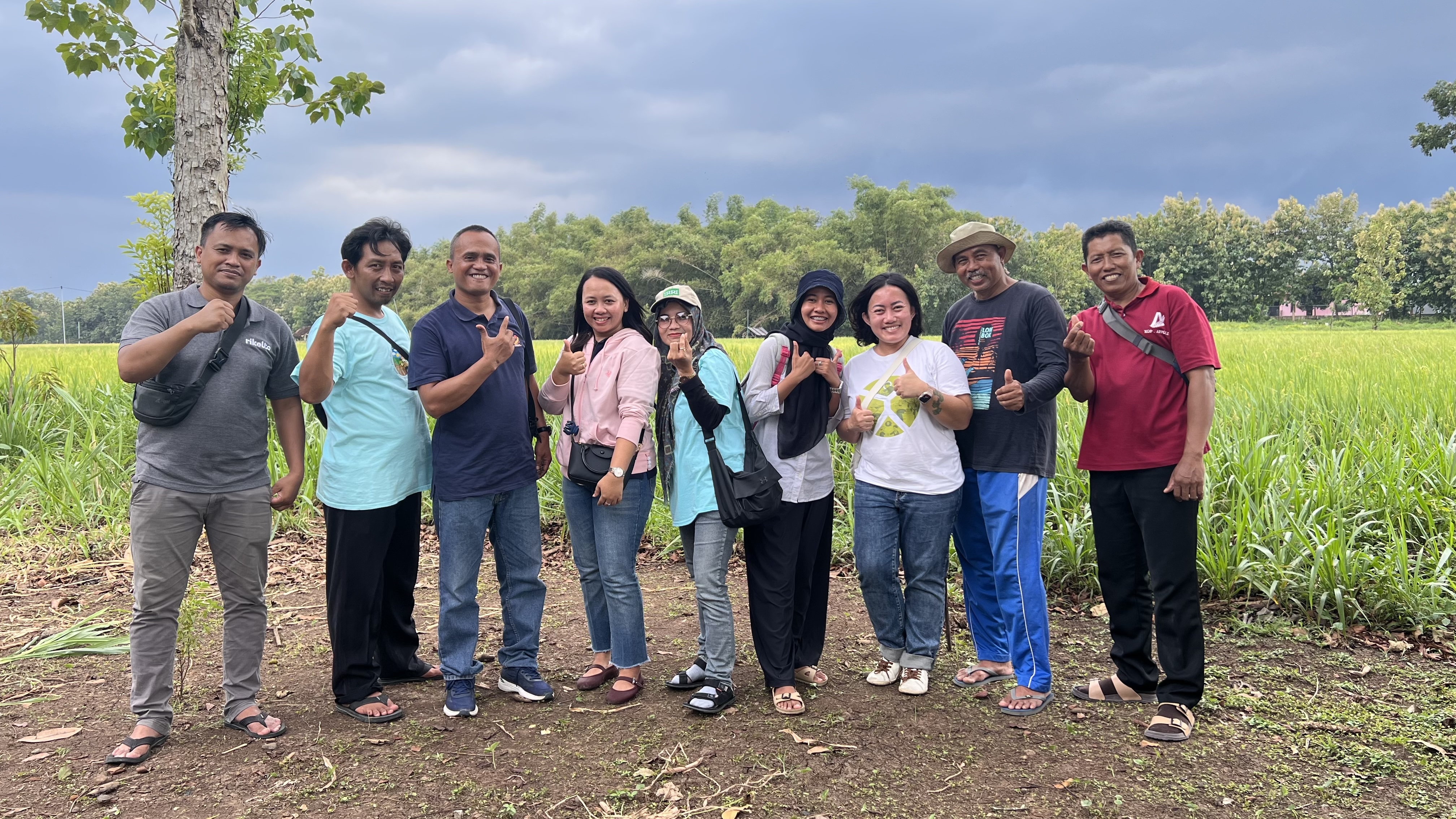In Boyolali, Central Java, farmers face significant challenges in accessing markets and securing fair prices for their harvests. Many rely on middlemen (tengkulak), who often buy their crops at low prices, making it difficult for farmers to earn a sustainable income. Additionally, access to financing remains a major hurdle, as many small-scale farmers lack collateral or credit history to obtain business loans.
This situation led to the establishment of the Aliansi Petani Padi Organik Boyolali (APPOLI) in 2007. The founders, including Muhdi and Danang, sought to create a cooperative that would provide farmers with better market access, improve their livelihoods, and introduce sustainable farming practices. Their vision was to build a more equitable and resilient agricultural system that genuinely benefits smallholder farmers.


However, their journey was not without difficulties. In its early years, APPOLI struggled with financing, as cooperative loans had to be obtained individually by members. The founders also had to endure periods without salaries as they worked to establish the cooperative.

“In the beginning, we had to take out loans individually because the cooperative couldn’t borrow directly from the bank. Sometimes, we had no income, but we kept going because we believed APPOLI could be a solution for farmers,”
Despite these struggles, the cooperative has grown steadily over the years, thanks to the persistence and collective spirit of its members. With continuous support from Rikolto, particularly in capacity building and strengthening market access, APPOLI has made significant progress. Today, the cooperative has been able to purchase land and build its own office—entirely funded by its business profits, without government assistance—marking a major milestone in its journey.
One of the key ways Rikolto has supported APPOLI’s development is by introducing the Sustainable Rice Platform (SRP) to its farmers. SRP is a sustainable rice farming approach that aims to increase yields while preserving ecological balance. This method encourages farmers to reduce pesticide and chemical fertiliser use, optimise irrigation, and implement more efficient, environmentally friendly agricultural practices.
Currently, APPOLI works with 1,507 farmers across a total of 517.735 hectares of farmland, divided into the following categories:
• SRP Farmers: 977 farmers (340.945 ha)
• Indonesian National Standard (SNI)-Certified Farmers: 328 farmers (126 ha)
• Non-Certified Organic Farmers: 87 farmers (22.88 ha)
• Conventional Farmers: 115 farmers (28.18 ha)
.jpeg)
.jpeg)
Beyond white rice, APPOLI’s farmers also produce red rice, brown rice, black rice, pandan wangi rice, mung beans, organic seeds, and organic fertilisers. This diversified approach not only improves harvest volumes but also ensures long-term sustainability and food security.
By implementing SRP, APPOLI farmers have improved harvest volumes, enhanced rice quality, and secured better market prices. Additionally, farmers receive regular training on organic cultivation techniques, post-harvest management, and marketing strategies.

“We want farmers to achieve better yields without harming the land. Through SRP, productivity has increased while production costs have decreased. This system helps us not only boost output but also minimise the environmental impact of farming, ensuring long-term sustainability for future generations,”
To further strengthen APPOLI’s market presence, Rikolto has facilitated its participation in exclusive commodity exhibitions in Jakarta, regularly attended by buyers from the European Union. This has enabled APPOLI to explore export opportunities and expand its sales beyond the domestic market.

Thanks to its inclusive approach, APPOLI has not only improved farmers’ productivity but also created significant social impact. The cooperative currently employs six workers in processing operations and has five staff members, four of whom are women—demonstrating APPOLI’s commitment to promoting gender inclusivity in agriculture. The cooperative also actively involves young people, with two staff members under the age of 35 engaged in its daily operations.


Through the cooperative system, APPOLI has successfully built an inclusive business ecosystem that delivers tangible benefits for smallholder farmers. Farmers’ incomes have increased as they are no longer dependent on middlemen, and their rice now commands higher prices in the market. Additionally, the sustainable farming system helps preserve soil fertility and contributes to local food security.

Looking ahead, APPOLI aims to expand its reach by increasing the number of supported farmers and strengthening its market networks. The cooperative also plans to modernise its processing facilities and further enhance farmers’ capacity to adopt sustainable agricultural practices.
“We want APPOLI to become a model for agricultural cooperatives—not just in Boyolali, but as an inspiration for other regions across Indonesia,” said Danang.
Through its long and challenging journey, APPOLI has demonstrated that with strong commitment and sustainable farming innovations, community-based cooperatives can be a solution for improving smallholder farmers’ livelihoods. With a spirit of collaboration and sustainability as its guiding principles, the cooperative is set to continue growing—creating a more inclusive, fair, and resilient agricultural system for the future.